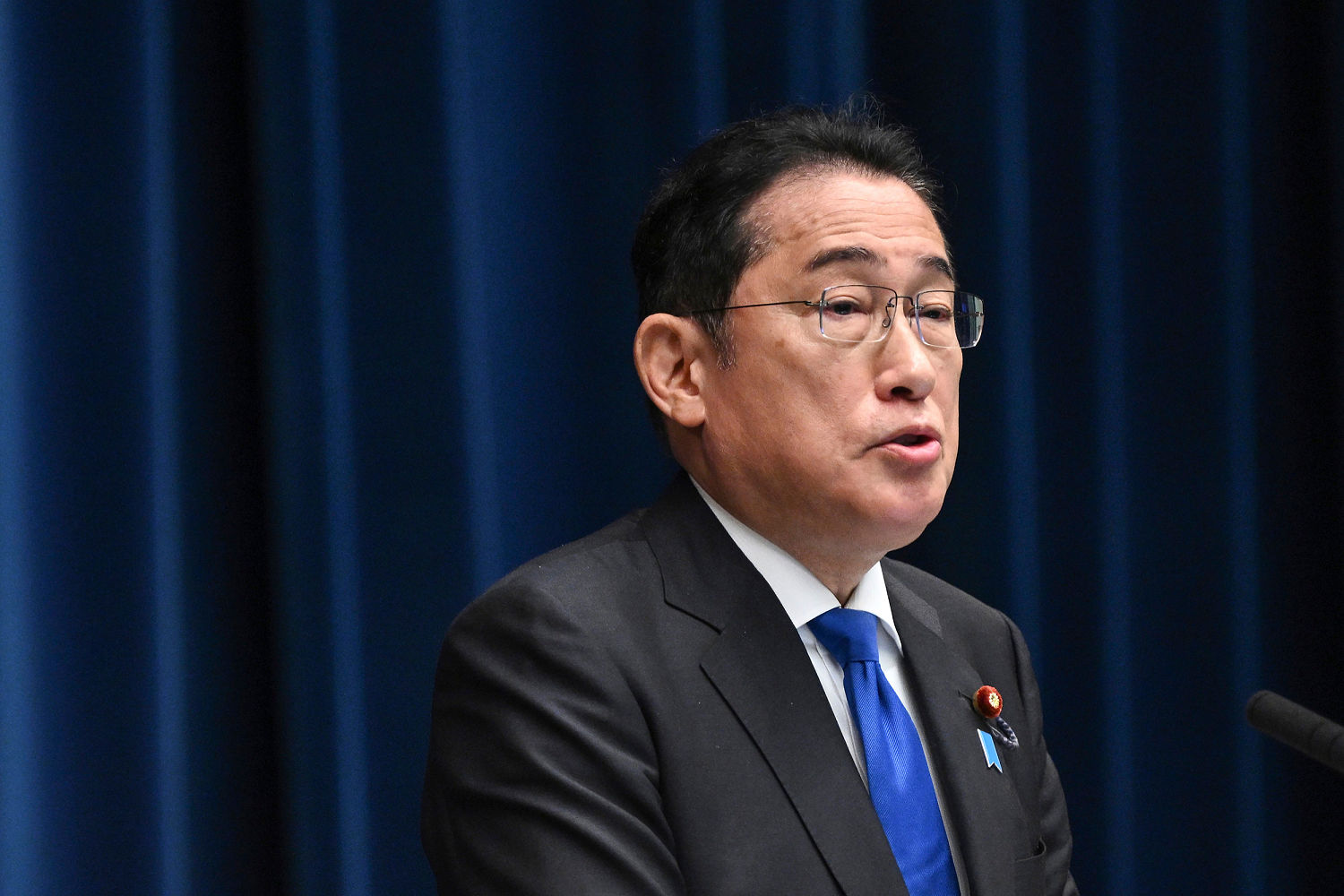
TOKYO — Japanese Prime Minister Fumio Kishida said Wednesday that he would step aside next month, meaning the key U.S. ally will have a new leader as it confronts China abroad and a mix of scandal and economic issues at home.
Kishida, 67, made the surprise announcement that he would not run to remain leader of his party in September, paving the way for a new prime minister.
Speaking at a news conference in Tokyo, Kishida said the ruling Liberal Democratic Party (LDP), which has been beset by a series of corruption scandals, needed to demonstrate to the public that it is changing by making the leadership election process more transparent and encouraging intraparty discourse and debate.
The first step in that process, he said, is for him to step down.
“I will not be running in the upcoming leadership election,” Kishida said. “Rather, I will do my utmost to support whoever becomes the new leader as a foot soldier.”
Kishida was elected in September 2021 to a three-year term as president of the LDP, which controls both houses of parliament. Since the head of the governing party is elected by parliament as Japan’s leader, that means Kishida will no longer be prime minister after the LDP’s September presidential election, the specific date for which has not yet been set.
The Biden administration has made a point of strengthening U.S. ties with Japan, the world’s fourth-largest economy, as part of its efforts to counter China in the Asia-Pacific. In April, the U.S. and Japan announced a historic upgrade to their security alliance while Kishida was on a state visit to Washington.
Kishida has also built up the Japanese military and improved relations with South Korea, another U.S. ally in the region.
In a post on X, U.S. Ambassador to Japan Rahm Emanuel called Kishida “a true friend of the United States.”
“Under Prime Minister Kishida’s steadfast leadership, Japan and the United States have ushered in a new era of relations for the Alliance,” he said.
Kishida’s public approval ratings have been dismally low since last fall, when the LDP was revealed to have raised unreported political funds through tickets sold for party events. Most of the more than 80 LDP lawmakers involved were from a powerful faction of the party that had been led by former Prime Minister Shinzo Abe before his assassination in 2022.
Kishida, who was never personally implicated in the scandal, responded by removing Cabinet ministers and others from LDP executive posts, dissolving multiple party factions and tightening Japan’s political funds control law.
But the media and public accused him of weak party management, and in parliamentary by-elections in April, the LDP lost all three seats being contested in what was viewed as punishment by voters.
With general elections scheduled to be held next year, LDP members had started to complain publicly that they couldn’t win with Kishida as the public face of the party.
“He was a dead man walking for a long time,” Amir Anvarzadeh, a market strategist at the independent Japan equity advisory firm Asymmetric Advisors, told CNBC.
He attributed Kishida’s political decline to what he said were policy mistakes by the Bank of Japan, which unexpectedly raised its key interest rate last month in an effort to slow the yen’s decline against the U.S. dollar.
In June, the yen crossed the 161 mark against the dollar, its lowest level since 1986. The weakness of the currency has brought an influx of foreign visitors and local complaints of an “overtourism crisis.”
“The Japanese feel more impoverished because of the weaker yen,” Anvarzadeh said. ”They can’t go out of the country because it’s become so much more expensive at home, there’s just this inbound boom of tourism raising prices.”
Arata Yamamoto reported from Tokyo, and Jennifer Jett reported from Hong Kong.
